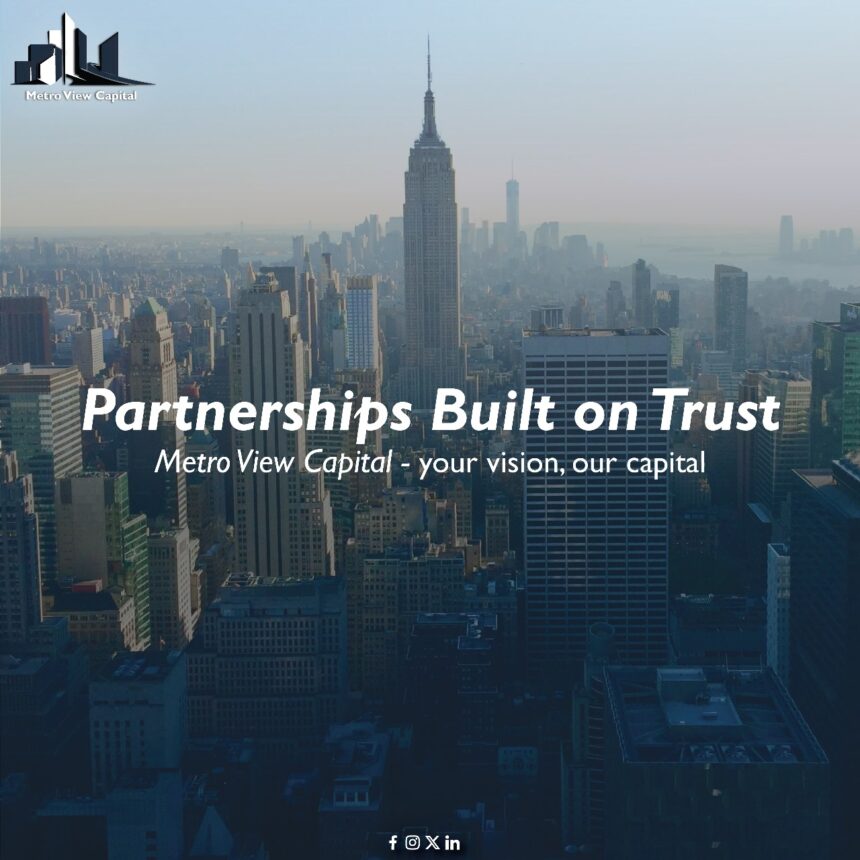The landscape of real estate investing is constantly changing, and large scale property finance is no exception. Over the years, private real estate investors and principal real estate investors have seen significant shifts in market conditions, technological advancements, and regulatory changes. Looking forward, it is important for investors to be ahead of these trends so that their strategies can be aligned with the changing market environment.
In this blog post, we are going to explore the future of large scale property finance and emerging trends that will shape the industry. Whether you are a private real estate investor or a principal real estate investor, understanding these trends will help you make informed decisions and maximize your investment opportunities in the years ahead.
1. Technology and Digital Transformation
Technology’s influence on real estate is undeniable, and its role in the future of large-scale property finance will be even more significant. The rise of artificial intelligence, blockchain technology, and data analytics will give private real estate investors and principal real estate investors better tools to make investment decisions, streamline property management, and ensure greater transparency in transactions.
Key Technologies to Watch
Blockchain: Blockchain technology is increasingly being used in real estate, especially in simplifying property transactions, improving transparency, and reducing fraud. Blockchain enables investors to track ownership history easily, verify contracts, and even execute smart contracts without the involvement of intermediaries. For private real estate investors and principal real estate investors, blockchain could be an essential tool in enhancing transaction efficiency and security.
AI and Machine Learning: AI is already making its mark on real estate investment analysis. By analyzing vast amounts of market data, AI can predict trends, identify high-value investment opportunities, and assist with pricing models. Machine learning can be used to assess property values, identify high-demand locations, and recommend the best time to buy or sell properties. This enables private real estate investors and principal real estate investors to make data-driven decisions, reducing human error and optimizing returns.
PropTech: PropTech, or property technology, has disrupted the property management and investment business. Platforms dealing with digitized solutions in property management, investment tracking, and maintenance are to grow higher. Integrations of PropTech into large-scale property finance seamlessly will make it more efficient and cost-effective in managing real estate assets.
2. Sustainability and Green Building Practices
Sustainability is becoming the face of the modern world of real estate. As environmental awareness expands globally, there is a greater demand from commercial and residential to keep up with green building practices. Principal real estate investors are already making a huge investment in green buildings and sustainable real estate developments, and this trend is expected to pick up pace in the future.
The private real estate investors who choose to invest in sustainable properties will benefit from several advantages, including tax incentives, higher demand from environmentally-conscious tenants, and long-term energy savings. As cities move toward stricter environmental regulations, properties that comply with these standards will see higher returns and lower risks.
Key Sustainability Trends in Property Finance
Energy Efficiency: Every new development in the building stock will have technologies that are as energy-efficient as possible, through smart thermostats, photovoltaic roofing, and so on. Some of these cost savings will ensure reduced operating expenses, but better property value becomes an attractive sale for investors, and tenants likewise.
LEED Certification: Properties certified under the LEED program (Leadership in Energy and Environmental Design) would be in great demand. A LEED certified property is evidence of a building’s commitment towards environmental responsibility as well as its energy efficiency; this is vital for private real estate investors and principal real estate investors.
Climate Resilience: Property developers and investors will focus on designing buildings to be resilient against climate change. This will mean measures to cope with extreme weather events, sea level rise, and other climatic risks. Large-scale property finance projects would have to include these factors in order to mitigate risk and safeguard long-term value.
3. Changes in Demographic Preferences
The changing demographics of renters and buyers are also influencing the future of large scale property finance. Today’s consumers are reshaping the types of properties that private real estate investors and principal real estate investors should consider when making investment decisions.
Key Demographic Shifts
Millennial and Gen Z Preferences: Younger generations are focusing more on walkable neighborhoods, proximity to public transportation, and strong community ties within the properties. With these generations forming a greater proportion of the housing market, demand for urban, sustainable, and tech-savvy properties will only continue to grow. Private real estate investors who are attuned to these preferences can target acquisitions in such properties.
Aging Population: The aging population in many countries, especially in the developed markets, leads to an increase in demand for senior housing and retirement communities. This demographic shift creates a new opportunity for principal real estate investors to invest in properties designed for older adults, including assisted living and age-friendly housing solutions.
Work-from-Home Trends: The COVID-19 pandemic has accelerated the adoption of remote work, and this trend is expected to continue in the future. Demand for properties with home office spaces, flexible layouts, and access to high-speed internet is increasing. Private real estate investors can benefit from these trends by investing in properties that appeal to remote workers.
4. Alternative Financing Models
As the real estate industry evolves, traditional funding models are increasingly being challenged by alternative models. Crowdfunding, peer-to-peer lending, and tokenized real estate investments are becoming increasingly popular, especially among private real estate investors who lack the resources to fund large-scale projects on their own.
These alternative financing methods allow investors to pool capital from multiple sources to fund real estate transactions, enabling them to participate in larger deals with lower individual capital requirements.
Trends in Alternative Financing
Crowdfunding: Real estate crowdfunding platforms are enabling private real estate investors to invest in large-scale projects with relatively small amounts of capital. This democratizes access to high-quality real estate opportunities that would otherwise be inaccessible to individual investors.
Tokenization: Real estate tokenization is another emerging trend in large scale property finance. By breaking down a property’s value into digital tokens, investors can purchase fractional ownership in real estate, making it easier to diversify their portfolios and access liquidity.
Peer-to-Peer Lending: Peer-to-peer lending platforms are also allowing private real estate investors to obtain financing from individual lenders, bypassing traditional banks and financial institutions. This can result in more flexible terms and faster access to capital.
5. Globalization and Cross-Border Investment
The interconnected world creates vast opportunities for private real estate investors as well as principal real estate investors to diversify internationally. The emerging economies-Asia, Latin America, and Africa, to mention a few-in their real estate markets will increasingly gain attention from global investors because they offer higher returns.
Cross-border investment presents new challenges and opportunities. For large scale property finance, private real estate investors and principal real estate investors will need to navigate different regulatory environments, currency risks, and geopolitical factors.
Key Opportunities in Global Real Estate
Emerging Markets: Many investors are looking to capitalize on rapid urbanization and economic growth in developing regions. Targeting emerging markets allows investors to access high-growth opportunities that may not be available in more established markets.
International Partnerships: Cross-border partnerships are becoming more common, as investors seek local expertise and access to capital in foreign markets. Private real estate investors may partner with local developers or investment firms to mitigate risks and maximize returns.
Global REITs: International REITs provide a way for principal real estate investors to diversify their portfolios across different countries and property types. These funds allow investors to gain exposure to global real estate markets without the complexities of directly managing properties.
Conclusion
The future of large scale property finance is full of exciting possibilities. With the changing trends in the real estate industry, private real estate investors and principal real estate investors must change their strategies with changing market trends, demographic shifts, and evolving financing models.
Whether you’re looking to capitalize on sustainability trends, leverage new technologies, or diversify through international investments, staying ahead of the curve is crucial for success. By understanding and embracing these emerging trends, real estate investors can position themselves for growth and profitability in the years to come.
At Metro View Capital, we specialize in helping private real estate investors and principal real estate investors navigate large scale property finance in an ever-changing market. Contact us today to learn more about how we can help you achieve your real estate investment goals.
Connect With Us
We’re here to answer all your questions about real estate financing and help you achieve your investment goals! Stay updated with the latest insights and opportunities by connecting with us on social media:
Facebook: https://www.facebook.com/metroviewrcapital/
Instagram: https://www.instagram.com/mvc_nyc/
Partner with Metro View Capital and explore the possibilities for your real estate investments!


